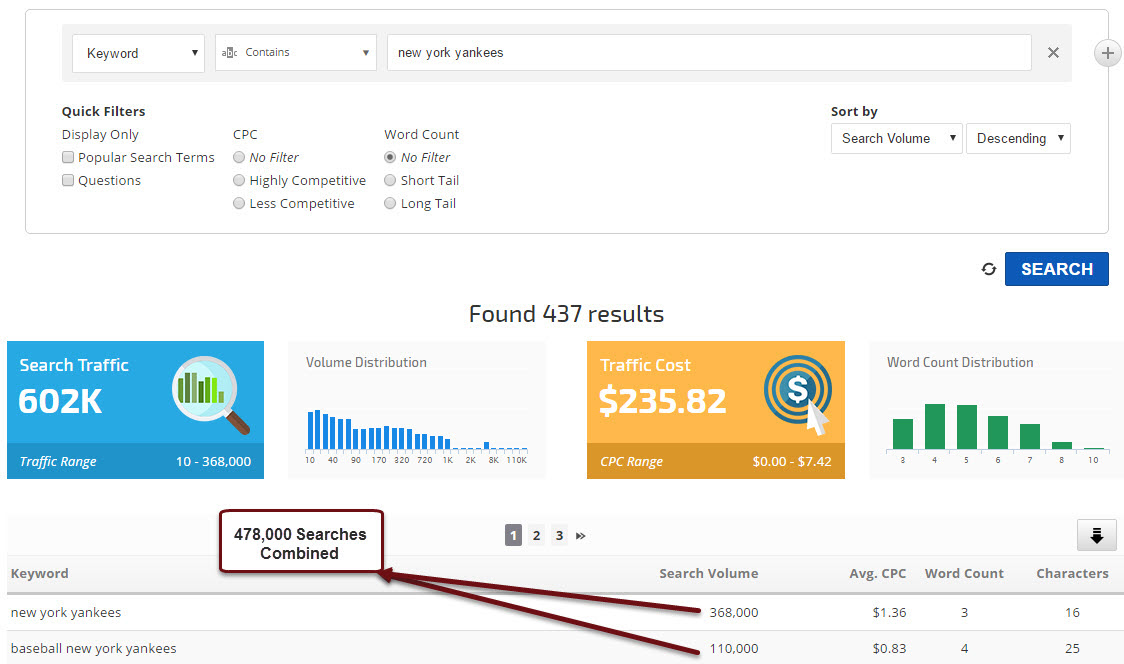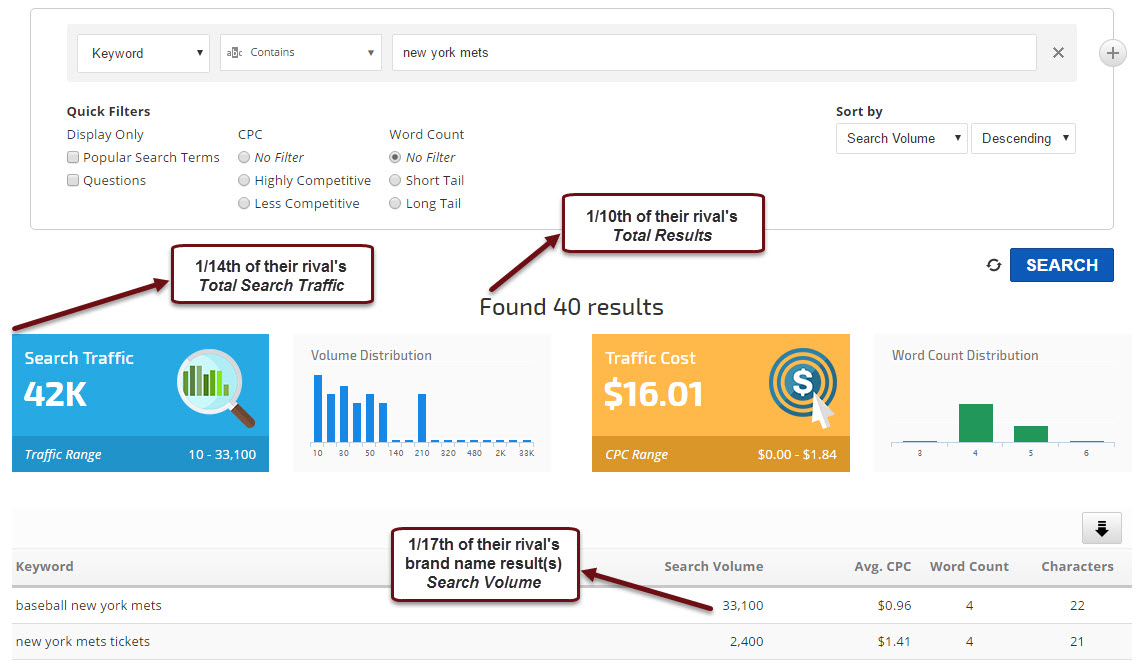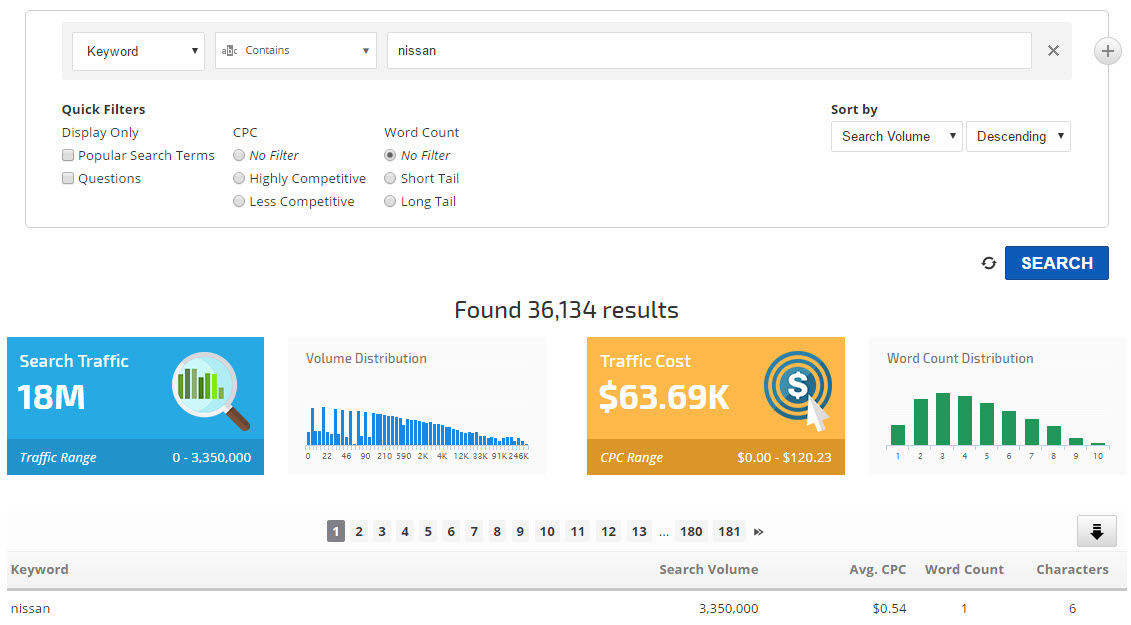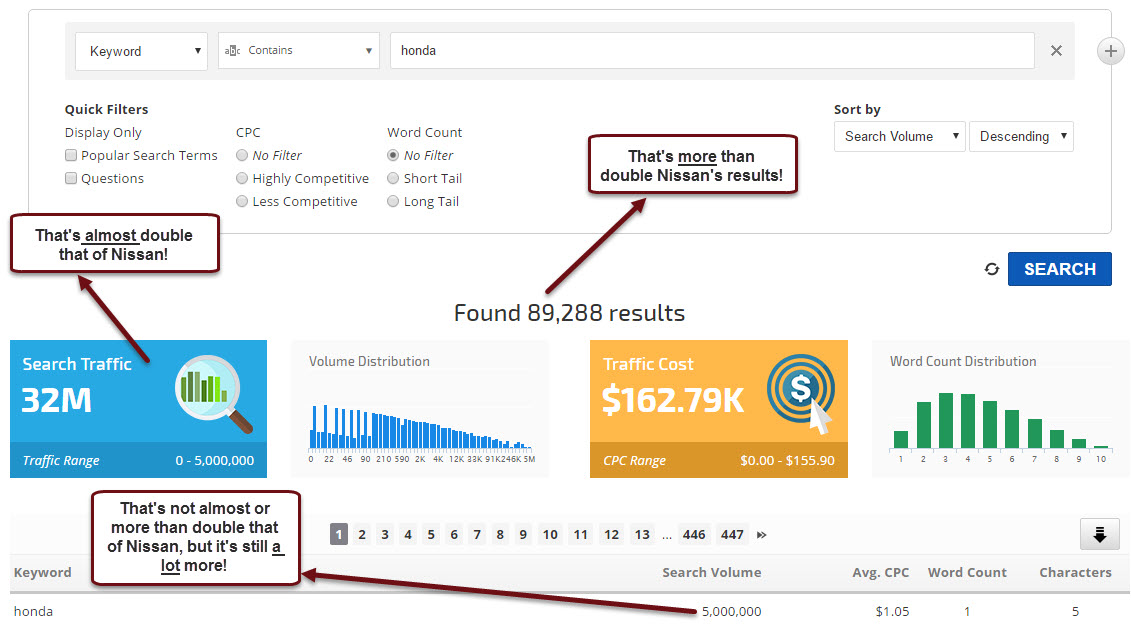Posted by
Mordy Oberstein
Keyword research is a uniquely dynamic way to perform brand analysis and in the first installment of this blog series, you saw exactly how brands and content creators can take advantage of keyword research. In this second and final chapter in the keyword research for brand analysis saga, we’ll get into the heart of the matter by seeing how employing keyword research in this manner can change how advertisers approach their trade. Once again, employing Rank Ranger’s new keyword research tool – Keyword Finder – let’s explore how advertisers of all kinds can engage keyword research for their brand analysis needs.
The Advertising Advantage of Brand Analysis Using Keyword Research
Analyzing brands via keyword research presents unlimited possibilities and as such there are countless ways to employ the strategy. Due to the prolific uses of keyword research to determine brand power there are certainly more and less common ways to employ the technique. With that introduction, let’s find some of the more outlandish ways to employ keyword research when analyzing brands!
Advertising with Brands
You might ask, when does one advertise with a brand? Actually, all of the time. Sports would be a great example. Sports arenas and stadiums are plastered with ads, every possible geometric space, no matter how bizarre, has on ad on it. Whether it’s the boards of a hockey rink, the perimeter of a soccer (football) stadium, or the backboard of a baseball stadium, there are ads, lots of ads, and each team is in reality… a brand. I remember when they first started plastering ads on the wall behind the catcher at baseball stadiums, now the whole wall is basically a giant green screen with alternating ads (it’s crazy, I know)!
Working within this construct, say you were a big national financial firm and you wanted your firm’s name to pop up behind the catcher on the backboard at a baseball stadium. Well, the first thing you would need to do is pick a city that you want to target (all things being equal of course). Let’s go one step further, you want to be an official sponsor of a team, you want your logo on every hat, jersey, and baseball bat associated with the team. Most likely, you would pick a big market city, say Los Angeles or New York. For our purposes let’s go with New York, which has two baseball teams, the Mets and the Yankees. How do you go about seeing which brand is really more powerful and more importantly, more popular?
Comes along keyword research to show you just how relevant it is to brand analysis. The Yankees show tremendous brand popularity. There were a total of almost half a million searches just for the brand’s top two ranking keywords…. out of a total search volume of 602K!

Fig 1. Those keywords that directly relate to the New York Yankee brand make up 80% of the Total Search Traffic that includes the words “New York Yankees”
The Mets didn’t even come close. The total search volume of their top two results was just over 35K, that’s an enormous difference when targeting the New York market. Obviously there are other factors going into a decision to become a team’s official sponsor. I would imagine going with the Yankees would be far more expensive than sponsoring the Mets. However, all things being equal, keyword research, via its ability to analyze brands, is a powerful decision making tool in this context.

Fig 2. Keywords that relate directly to the New York Mets brand show only a fraction of the search volume power of the New York Yankees brand
Associating with Big Brands for Marketing Purposes
Yet another interesting vantage point on using keyword research for brand analysis within the marketing context is associating with big brands on your site. It’s become normal marketing procedure to display the logo of the brands that make use of your services. Assume for a moment that your business is wildly successful and dozens of name brands make use of your services each and every day. With limited space on your webpage, how do you determine which brands to feature? This is no small question, having these brands presented on your site can be a major draw for new customers, who by seeing that logo of a major brand will simply trust you, as odd as that may sound.

I’ll use just a very simple and quick example to illustrate just why you would even want to spend the time (literally a few seconds actually) plugging the brands you service into Keyword Finder. For argument’s sake, say your firm provides service to both Honda as well as Nissan, two undisputed global automotive giants. Believe it or not, there is a total search traffic differential of about 15 million searches between the two brands (in Honda’s favor).
A 15 million search volume differential is no small number and all things being equal could signify that Honda is far more recognizable than Nissan is. To this extent, the data could also mean that more people most likely associate Honda with a well established and trustworthy company than they do Nissan.

Fig 3. A keyword query for the car maker “Nissan” yields 36K results and a total Search Traffic of 18 million
Just looking at the brand name keyword results alone is striking enough. There were over 15 million more searches for the standalone “Honda” brand name than for “Nissan.” Let me be a bit melodramatic to drive the point home, a lot more people are interested in trusting Honda with their lives at 100 miles (or 161 km) per hour than they are Nissan…. whose logo would you want on your site? OK, drama over, but point made.

Fig 4. When compared to Nissan, the Honda brand displays considerably more Results, Total Search Traffic, and Search Volume
It’s an odd way to think about using keyword research to evaluate brand power, which is exactly why I’m using it. My point here is to show you just how far-reaching and applicable keyword research is to brand analysis. Even outlying examples (such as this one) fall under its umbrella, how much more so the typical marketing scenarios we deal with on any given day? And all it took, was two keyword searches and literally about 30 seconds of my time.
Why Use Keyword Research to Analyze Brand Power?
It’s easy to get stuck thinking of keyword research as merely a way to find highly optimized keywords for website content and PPC advertising. Fundamentally however, keyword research is a way of seeing how popular certain terms are with people (among other things). Although, in a more “meta” sense, keyword research really tells you how popular certain topics, services, and in our case, brands actually are. A specific keyword almost always resides within a larger context, an industry, a service, and yes… a brand. Using keyword research for brand evaluation is not some far flung absurd notion, it should be part of the natural course of market research, plain and simple.
Throughout these two posts I purposely chose what may be some unconventional ways to use keyword research to analyze brand power, but I did so to highlight one point…. no matter how outlandish the example you come up with is, keyword research for brand analysis is applicable and powerful. Taking advantage of it can help you come to more accurate conclusions about brand reach and popularity and help improve your content, marketing, and overall business decisions.

